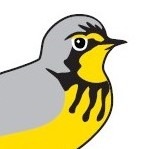By Kathy Jones, Ontario Programs Volunteer Coordinator, Bird Studies Canada

Common Loons Photo: Sandra Horvath
Leaves change colour as we store our summer equipment and close up our camps or cottages. The abundance of harvest is on our tables. Some Canadians have had the dubious pleasure of seeing their first winter snow, while others enjoy classic fall rain.
Meanwhile, the majority of adult Common Loons have changed to their grey winter colours and are headed for the coasts (Atlantic, Pacific, or Gulf of Mexico) to join sub-adults on inshore lakes or in the near-shore coastal waters. During migration, they travel as individuals or in small groups, but will also congregate on larger lakes – likely to feed. This year’s young will soon be on their way, leaving their natal lakes before freeze-up.
For volunteers and loons alike, this autumn marks the end of the 38th season of the Canadian Lakes Loon Survey. Five hundred and fifty Citizen Scientists across the country registered to monitor loons and their reproductive success. Data have already been submitted on more than 300 lakes from 8 provinces and all 3 territories.
Early results suggest that about half of the loon pairs studied this year produced at least one chick that reached six weeks of age – just slightly above the long-term average. We use the number of six-week-old young produced per pair as a measure of reproductive success. Six-week-old chicks are approaching adult size and are much less likely than smaller chicks to be eaten by a predator, making them representative of the number of young raised to independence.
Bird Studies Canada gratefully acknowledges all survey volunteers for collecting this important information. We thank the participants who have already submitted their observations, and look forward to seeing the remainder of the data arrive. Participants who have yet to report can return their forms to us by mail or enter data online. Please visit our survey resources page for results, program materials, and much more!
This program is supported by the generous contributions of Bird Studies Canada members. Not a member yet? You can join our flock here.

